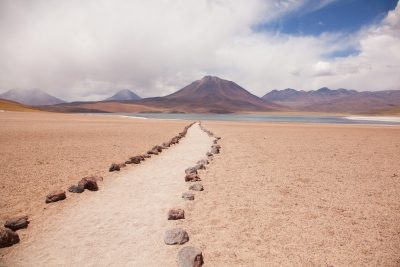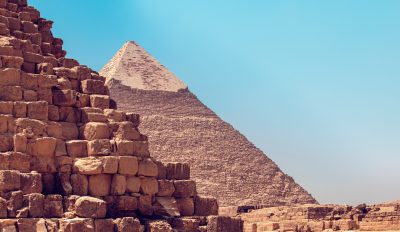×


We have detected your country as:
Please click here to go to the USA website or select another country from the dropdown list.
by: Rev. Cheryl Hauer, International Vice President
 As we are nearly halfway through the year, I can’t help but reflect on the changes that 16 months of the pandemic have wrought on humanity. We have isolated and quarantined, worn masks and gloves, washed our hands more times in a year than in the rest of our lifetimes combined and made sure that at least 6 feet (2 m.) remained continually between us and anyone else. Gone were the days of friendly physical contact, shaking hands, hugging or those polite kisses on the cheek. Equally absent were road trips, afternoons at the movies or the park and flights to faraway places.
As we are nearly halfway through the year, I can’t help but reflect on the changes that 16 months of the pandemic have wrought on humanity. We have isolated and quarantined, worn masks and gloves, washed our hands more times in a year than in the rest of our lifetimes combined and made sure that at least 6 feet (2 m.) remained continually between us and anyone else. Gone were the days of friendly physical contact, shaking hands, hugging or those polite kisses on the cheek. Equally absent were road trips, afternoons at the movies or the park and flights to faraway places.
Many of us saw our lives thrown into utter chaos, lost our jobs and loved ones and experienced the helplessness that could only come with the realization that our perceived human ability to somehow always find a way to fix things is an illusion. Instant gratification gave way to a new reality in which we had to wait—powerless—as we sat confined to our houses watching the morbidity rate climb.
Through it all, I found myself crying out to the Lord for freedom, something I had long taken for granted. I yearned for deliverance from the oppression of an invisible enemy, the liberty to come and go as I pleased again, to worship together with hundreds of believers in the church I love and to fill my home with family and friends to celebrate life.
In a certain way, the yearning of my heart reminded me of the story in Exodus 13 through 17. It is the amazing account of the Hebrews living in slavery, oppressed by a very real and visible enemy, and their miraculous deliverance to freedom. My short pandemic experience hardly compares to their 400 years of physical and mental abuse at the hands of the Egyptians. But the story is rife with lessons that are as valid for us today as they were for the Jewish people millennia ago.
Four hundred years is a long time. It is actually longer than the current life span of America. And it was certainly long enough to become disconnected from the reality of the God of the universe as experienced by their forefathers. As time passed and generations died off, the stories of Abraham, Isaac and Jacob would have seemed more and more like a distant dream. As the centuries passed, any thought that they might somehow “find a way to fix things” would have died a slow death, replaced by the reality of their dependence on God as the only solution to their dilemma. They cried out to Him countless times until finally, He heard.
In His time, He wrought deliverance—and what a deliverance it was! Not only were they leaving at long last, but they were carrying with them the wealth of Egypt. They had seen one plague after another defeat the gods of Egypt. They had heard Moses repeatedly arguing with Pharaoh, the Egyptian king who thought he was actually the ultimate god and believed that he held the future in his hand. They had heard the cries of the Egyptians when the spirit of death descended on their country and destroyed the firstborn of their families and their flocks. Who could have imagined that this ragtag group of slaves would walk away from the greatest power on earth not only with their lives and their children, but with the silver and gold of their Egyptian neighbors? Who could have anticipated that God would intervene in human history, even neutralizing the natural forces of the universe, to split the sea, bring water from a rock and perform countless other miracles to deliver a people who had not heard His voice for 400 years?
 I have often heard Christians express their disbelief that the Israelites could have so quickly forgotten what God had done for them in Egypt and began moaning and complaining. The Bible tells us they were a scant three days out when complaints, fear and anger arose because there was no water. A few days later, they complained about food. How could they? It brings to mind the numbers of Christians today who have known the presence and love of God and experienced the miracle of life in His Kingdom, yet were overcome during the pandemic, filled with fear, anxiety and depression. The Israelites are not alone in their forgetfulness.
I have often heard Christians express their disbelief that the Israelites could have so quickly forgotten what God had done for them in Egypt and began moaning and complaining. The Bible tells us they were a scant three days out when complaints, fear and anger arose because there was no water. A few days later, they complained about food. How could they? It brings to mind the numbers of Christians today who have known the presence and love of God and experienced the miracle of life in His Kingdom, yet were overcome during the pandemic, filled with fear, anxiety and depression. The Israelites are not alone in their forgetfulness.
I think if we were to walk a mile in the sandals of those Hebrews, we might be less judgmental. After all, Moses was a bit of an unknown quantity when he arrived on the scene with a mandate from God to free them. Although his brother and sister were alive, he hadn’t grown up with them or in their community. He was never a slave. For all intents and purposes, he was an Egyptian who grew up in Pharaoh’s court. It didn’t help that the first action he took toward that deliverance brought Pharaoh’s wrath upon them and resulted in their having to make bricks without straw.
We know they cried out to God for deliverance. Obviously, they believed in His existence and ultimate ability to do the miraculous and save them, but there is no historical record to indicate that they had any organized system of religion, personal connection to or relationship with God. They did not yet have the Torah (Gen.–Deut.) or the system that today we call Judaism. They only had stories from the mists of history and 400 years of persecution to form their belief system.
It is clear in the Scriptures that Moses wasn’t always trusted as he should have been. People who had lived lives ordered by others found themselves in the midst of the desert without enough food or water to feed over a million people, following a leader they weren’t sure they trusted. They had witnessed the plagues, but the first nine did not seem very effective. After each one, they were still slaves. And when they finally were freed, it was on the heels of a horrendous night of death.
I suggest they were a traumatized people, filled with incredible fear and uncertainty. Although they hated their lives as slaves, it was what they knew. They were uprooted, with no idea where they were going, knowing only the dangers that lurked in the desert and the stupidity of embarking on such a journey without enough food and water.
In retrospect, it is easy for us to see that our ever faithful, loving and all-powerful God was with them to deliver them every step of the way. But God had to teach them that. They were the product of centuries of slavery that defined them—not just what they did, but who they were and everything they knew about life and themselves. These were not people who made decisions; they followed orders. They were totally dependent on their masters.
Yes, they were oppressed, afflicted and cried out for deliverance, but when it came, they weren’t sure they wanted it. “Why did you bring us out here to die?” they asked Moses. “We would rather go back!” After all, in their slavery was a strange kind of freedom: freedom from responsibility for yourself and others, from having to set goals and attempt to reach them and from having to think beyond the present moment. It was what they knew and in it was the only kind of safety they had ever experienced.
How very like us. We all have those places inside with a little sign that says DO NOT ENTER, places where we will not allow the Lord to go even though we need deliverance, to be led into freedom from bondage to whatever it is that enslaves us. But that journey is the unknown and looks like it might be hard and painful, so we decide we’d rather stay where it is safe.
God’s plan was to wean the Israelites from a dependence that was part of their identity, allowing them to choose to depend on Him. Eventually, that would give them a new identity. They would cease to be slaves—dependent, oppressed, miserable and afflicted with no way out. They would become a free people with their own homeland, dependent on the God of the universe, a people of peace, prosperity and blessing who understood that with God, there is always a way out. They would shed their old identity and emerge as sons of God, children of the King. They would learn to trust Him and walk in His strength, living as warriors and pioneers, founders of a nation that would be at the center of God’s plan for the redemption of all mankind. They would truly become HIS people, chosen to represent Him to the entire world for millennia to come. That would be their identity. But first, they had to understand freedom.
 The Free Dictionary defines freedom as the power to act, speak or think without externally imposed restraints; immunity from obligation. Liberty is defined as autonomy, freedom of choice and personal freedom from servitude. However, the modern concept of freedom has narrowed to remove any sense of communal responsibility, encouraging self-determination as an expression of the individual will. It quickly becomes self-gratification, with my rights trumping everybody else’s. Somehow, freedom has come to mean an individual’s right to determine his or her own destiny with little or no regard for the destinies of those around them.
The Free Dictionary defines freedom as the power to act, speak or think without externally imposed restraints; immunity from obligation. Liberty is defined as autonomy, freedom of choice and personal freedom from servitude. However, the modern concept of freedom has narrowed to remove any sense of communal responsibility, encouraging self-determination as an expression of the individual will. It quickly becomes self-gratification, with my rights trumping everybody else’s. Somehow, freedom has come to mean an individual’s right to determine his or her own destiny with little or no regard for the destinies of those around them.
In The True Meaning of Freedom, Rabbi Yaakov Sinclair says that the archetype of freedom for all mankind is the Exodus from Egypt. Just as Egypt represented constriction for God’s people, their escape represented ultimate freedom. That freedom, however, was inextricably linked with responsibility. He points out that freedom, when discussed in the Torah (Gen.–Deut.), is always connected to a clear idea of ultimate purpose. Freedom without purpose, he says, is in itself slavery.
In Hebrew, these concepts are represented by the words chofesh and cherut. The difference is simply the freedom to do what you like versus the freedom to do what you should.
Chofesh is the freedom slaves acquire when they no longer have a master and no one is there to tell them what to do. They are now free spirits, liberated from bondage and accountable to no one.
Cherut is the freedom the Israelites acquired at Mount Sinai in the form of a covenant. God’s message to Pharaoh was clearly one of cherut: “Let My people go, that they may serve Me” (Exod. 9:1). Deliverance from slavery in Egypt meant the opportunity to choose to be in covenant with the God of the universe. Cherut would allow the Israelites to freely bind themselves to God and His commandments. There they would find Rabbi Sinclair’s freedom with a purpose.
It is perhaps no accident that many today are focused on the pursuit of chofesh while the concept of cherut fades from view. Our world has become one of chofesh. Cries for freedom are heard everywhere, but much of it is not born of a desire for true liberty. Rather, it is a longing born of selfishness, a desire to be free of communal responsibility and to focus only on ourselves. As believers, however, we have the freedom to choose to be bondservants of the Lord (Rom 1.1). In so doing, we become beacons of real freedom, strengthening the Kingdom, freely bound to God and His commandments and glorifying Him through our joyful, willing obedience. There is no greater example of the faithfulness and love of the Lord as someone who walks in true freedom. Regardless of the negative impact the pandemic has had on the world and on the Kingdom, my prayer is that we will grasp what true freedom really is and become true children of the King whose love for others and for the Lord defines us.
Photo Credit: Click on photo to see photo credit
Brimmer, Rebecca, J. Hauer, Cheryl, Riddering, Teri, Sprinkle, Charleeda. Hebrew Treasures. Jerusalem: Bridges for Peace International, 2011.
“Freedom.” The Free Dictionary. https://www.thefreedictionary.com/freedom
“Liberty.” The Free Dictionary. https://www.thefreedictionary.com/liberty
Sinclair, Rabbi Yaakov, Asher. “The True Meaning of Freedom.” Ohr Somayach. https://ohr.edu/829
All logos and trademarks in this site are property of their respective owner. All other materials are property of Bridges for Peace. Copyright © 2024.
Website Site Design by J-Town Internet Services Ltd. - Based in Jerusalem and Serving the World.